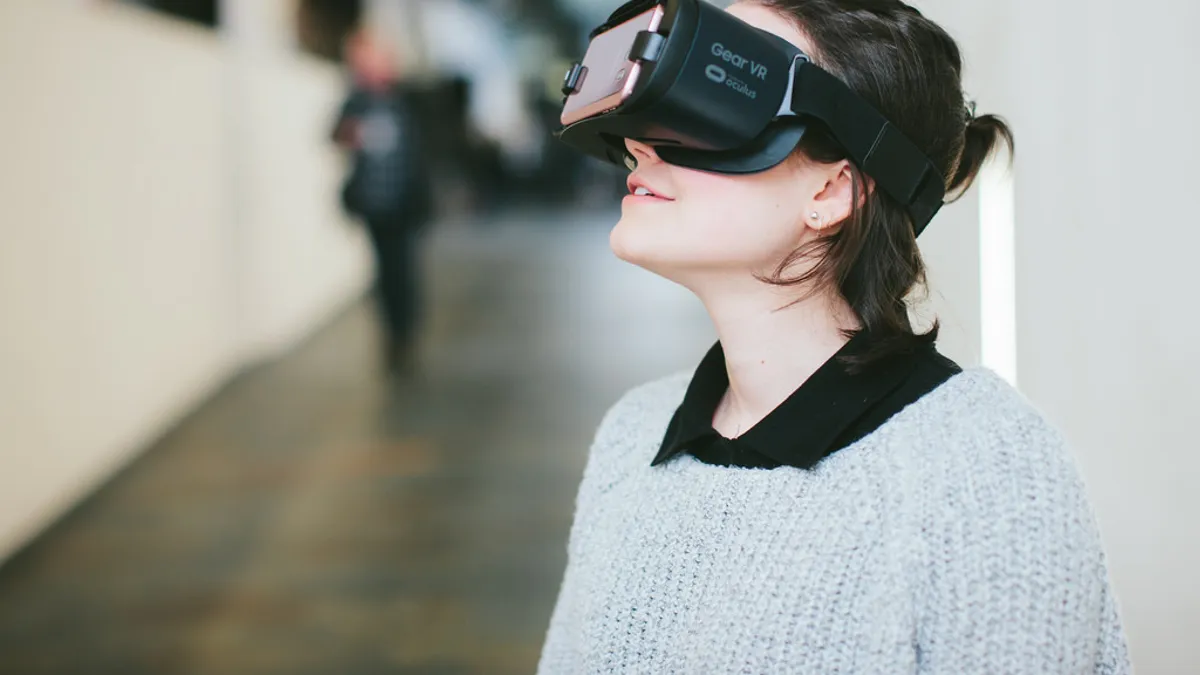Brief:
- Apple bought virtual reality (VR) startup NextVR, which streams immersive entertainment and live events like concerts and sports programming. The iPhone maker confirmed the acquisition, though not the deal price of $100 million reported by 9to5Mac.
- NextVR works with sports leagues like the NBA and media outlets such as Fox Sports to offer programming that people view while wearing a VR headset. NextVR provides content to makers of VR headsets including HTC, Lenovo, Sony and Oculus, which is owned by Facebook.
- NextVR shut down last week, posting a notice on its website that the company is "heading in a new direction." Apple this year has acquired voice technology startup Voysis and weather forecasting app Dark Sky, Bloomberg News reported.
Insight:
Apple's acquisition of NextVR is another sign of the iPhone maker's plans to develop augmented and virtual reality (AR/VR) technologies, which have a variety of marketing applications such as making advertising more immersive and interactive. AR has been the more popular of the two because of its ready availability on smartphones. VR requires specialized headsets and headphones to provide a completely immersive computer-generated experience. Despite interruptions to the supply chain for electronics components, AR/VR headsets are forecast to rebound in the second half of the year and show strong growth for the next few years, per International Data Corp.
Apple, which has a long history of making technology more accessible to consumers, may be able to popularize AR/VR headsets beyond niche markets in education, gaming and other enterprise applications. The company is working on two AR projects, including a headset that's due for release in 2022, followed by a less cumbersome pair of AR glasses the following year, The Information reported last year. Apple is typically secretive about its product development, leaving analysts to speculate on its plans to start selling an AR/VR headset that might be integrated with NextVR's technology.
CEO Tim Cook has touted AR technology for several years, predicting in 2016 that people will "have AR experiences every day, almost like eating three meals a day. It will become that much a part of you." The company in 2017 rolled out ARKit to help software developers create mobile apps that have AR features, and retailers like Ikea, Lowe's and Wayfair have released AR-based mobile apps to enhance in-store and mobile shopping experiences.
The acquisition of NextVR follows several deals in the past few years that indicate the company's intentions to expand into AR/VR technology. Apple last year bought U.K. special effects studio iKinema, which developed a technology to capture movements of people to create more realistic animated characters in video games and virtual settings at a lower cost. In 2018, it acquired Akonia Holographics, a startup with more than 200 patents related to holographic systems and materials, including a "HoloMirror" technology that allows for "thin, transparent smart glass lenses that display vibrant, full-color, wide field-of-view images."
Apple is seeking to diversify its revenue, which is mostly dependent on the iPhone, by developing a wider range of products and technologies. The smartphone market has matured and become more crowded with competitors, making innovation a key priority for Apple. Its wearables, home and accessories category, which include the Apple Watch and AirPod wireless headphones, boosted sales by 23% during the first three months of the year, while iPhone sales fell 6.7% from a year earlier as the coronavirus pandemic dampened demand in China.














